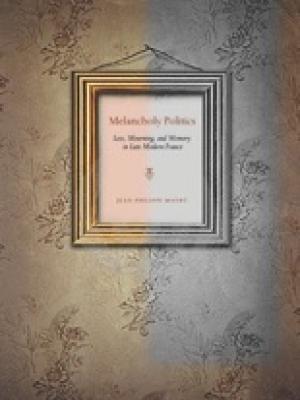
The current cultural climate in France is often described as one of “déclinisme” or “sinistrose,” a mixture of pessimism about the national future, nostalgia for the past, and a sinister sense of irreversible decline concerning the present. The notion of “democratic melancholia” has become widely popular, cropping up time and again in academic papers and newspaper articles. In Melancholy Politics, Jean-Philippe Mathy examines the development of this disenchanted mood in the works of prominent French philosophers, historians, and sociologists since the beginning of the 1980s. This period represents a significant turning point in French intellectual life, as the legacy of major postwar and sixties theorists such as Lévi-Strauss, Derrida, and Foucault was increasingly challenged by a younger generation of authors who repudiated both Marxism and structuralism. The book is not a classic intellectual or cultural history of post-1968 France, but rather a contribution to the understanding of the present―a collection of soundings into what remains largely a complex, ongoing process.